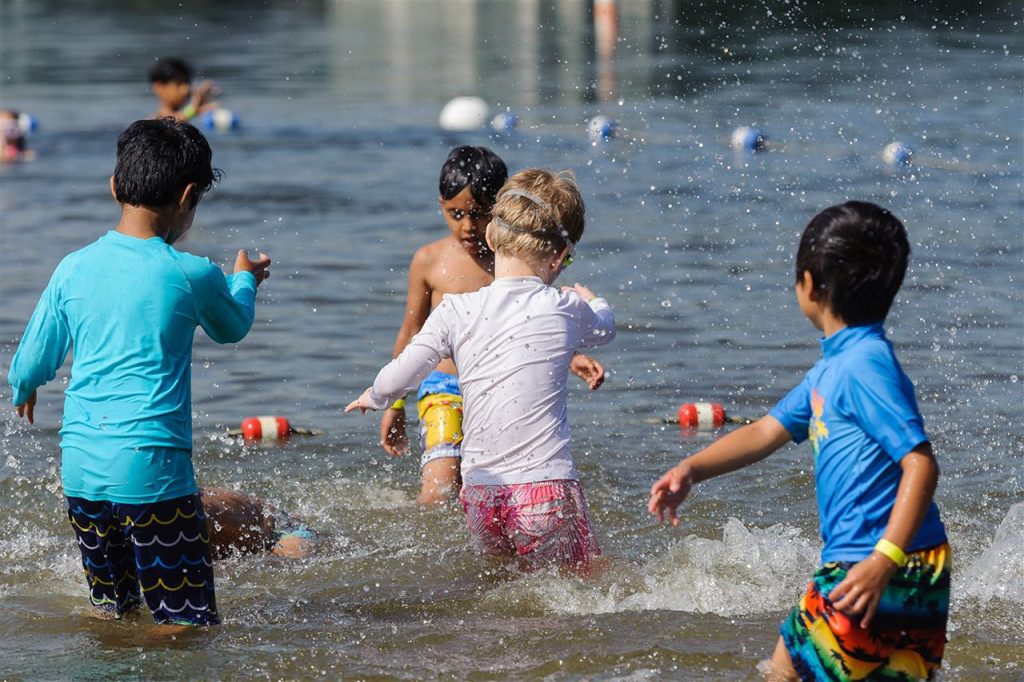Summer camps have long been cherished for offering children enriching experiences, personal growth, and enjoyable activities during school breaks. Combining educational opportunities with recreational fun, these programs foster skill development, social interaction, and independence. This article explores the numerous benefits summer camps provide, highlights various program types, and illustrates their lasting impact on children’s development and well-being.
The Importance of Summer Camps

Summer camps provide structured environments for children to learn, grow, and explore beyond traditional classroom settings. These experiences help children develop essential life skills, self-confidence, and social connections in relaxed, supportive settings. Summer camps also prevent learning loss during school breaks, encouraging ongoing educational growth through interactive, hands-on activities.
Educational Benefits of Summer Camps
Summer camps offer diverse educational opportunities, enhancing academic skills, curiosity, and lifelong learning:
1. Reducing Summer Learning Loss
Camps incorporating educational content, including reading, math, and science, prevent summer learning regression, commonly known as the “summer slide.” Engaging, interactive activities keep children’s minds active and prepared for the upcoming school year.
2. Developing New Skills and Interests
Summer camps often introduce children to new interests or talents, from robotics, coding, and arts to nature exploration and languages. Children have opportunities to discover hidden talents, expand interests, and develop valuable life skills.
3. Promoting Hands-On Learning
Camps typically emphasize experiential learning, enabling children to grasp concepts through practical, real-world experiences. Activities such as science experiments, nature hikes, or arts and crafts encourage curiosity, creativity, and active engagement.
4. Fostering Independence and Responsibility
Camps encourage self-reliance, responsibility, and decision-making skills. By managing personal belongings, daily schedules, and teamwork activities independently, children develop confidence and valuable life competencies.
Recreational and Social Benefits
Beyond academics, summer camps offer numerous recreational and social benefits essential for child development:
1. Encouraging Physical Activity and Healthy Habits
Camps offer abundant opportunities for physical activities, such as sports, swimming, hiking, and outdoor games. Active camp programs foster healthy lifestyles, improve physical fitness, and promote lifelong wellness habits.
2. Building Social Skills and Friendships
Summer camps encourage children to socialize, collaborate, and form meaningful friendships. Group activities and team-building exercises enhance communication, conflict-resolution, and interpersonal skills, building stronger relationships.
3. Promoting Emotional Growth and Resilience
Through various challenges, achievements, and interactions, children develop emotional resilience, coping skills, and positive self-esteem. Camps offer safe environments for overcoming fears, handling setbacks, and building emotional strength.
4. Connecting with Nature and the Outdoors
Camps frequently immerse children in natural environments, encouraging appreciation for nature, wildlife, and ecological conservation. Outdoor adventures help children develop environmental awareness and instill respect for the natural world.
Types of Summer Camp Programs
Summer camps cater to diverse interests, needs, and age groups, ranging from traditional outdoor adventures to specialized academic programs:
1. Traditional Summer Camps
Traditional camps offer diverse recreational activities, including sports, arts and crafts, swimming, and outdoor adventures. They emphasize socialization, teamwork, fun, and personal growth.
2. Academic and Enrichment Camps
Academic camps focus on subjects such as science, technology, engineering, arts, and mathematics (STEAM). They enhance children’s academic skills, curiosity, and creativity through specialized, engaging educational activities.
3. Sports and Fitness Camps
Sports-oriented camps teach children specific sports skills, teamwork, and sportsmanship while emphasizing physical fitness and athletic development. Examples include soccer camps, basketball camps, gymnastics, and swimming programs.
4. Performing and Visual Arts Camps
Arts camps foster creativity and artistic expression, providing training in drama, music, dance, painting, filmmaking, and other creative disciplines. These programs cultivate artistic talent, self-expression, and confidence.
5. Environmental and Nature Camps
Environmental camps encourage exploration and appreciation of nature through activities such as hiking, camping, conservation projects, and wildlife studies. These programs foster environmental stewardship and outdoor adventure skills knowledge.
Choosing the Right Summer Camp
Selecting an ideal summer camp involves considering multiple factors:
-
Child’s Interests: Choose programs aligned with your child’s passions or interests.
-
Program Objectives: Evaluate the camp’s educational or recreational objectives to match desired outcomes.
-
Staff Qualifications: Ensure camps employ trained, experienced, and qualified instructors or counselors.
-
Safety Measures: Confirm appropriate safety policies, emergency protocols, and supervision standards.
-
Logistics and Costs: Consider location, duration, transportation, and affordability to meet your family’s requirements.
Impact of Summer Camps on Child Development
The positive effects of summer camp experiences often last beyond the camp duration itself:
-
Increased Self-Confidence: Children return home with newfound confidence, pride in accomplishments, and independence.
-
Improved Academic Readiness: Educational camps reduce learning gaps, enhancing academic readiness for upcoming school years.
-
Stronger Social Bonds: Long-lasting friendships and enhanced social skills significantly benefit children’s emotional well-being.
-
Personal Growth and Lifelong Memories: Camp experiences provide enduring memories, personal growth opportunities, and essential life lessons.
Challenges and Solutions in Summer Camp Programs
Despite their benefits, summer camps occasionally encounter challenges:
-
Accessibility and Inclusivity: Financial or geographic barriers limit participation for some families. Offering scholarships, sliding-scale fees, or community partnerships improves accessibility.
-
Maintaining Quality: Consistent staff training, evaluation procedures, and structured activities help maintain high-quality experiences.
-
Health and Safety: Camps must prioritize robust health, safety, and emergency protocols, especially amid public health concerns, ensuring safe, enjoyable environments.
The Future of Summer Camp Programs
Future trends in summer camps include:
-
Increasing Virtual Options: Digital and virtual camps expand access, affordability, and offer flexible learning opportunities.
-
Emphasis on Sustainability: Camps increasingly emphasize eco-friendly practices, conservation education, and sustainable operations.
-
Enhanced Inclusion and Diversity: Camps actively promote diverse, inclusive environments welcoming children from varied backgrounds, abilities, and cultures.
Conclusion
Summer camps offer invaluable opportunities for educational enrichment, recreational enjoyment, social interaction, and personal growth. Through carefully designed programs, camps nurture children’s academic abilities, life skills, self-confidence, and connections to nature and community. By continuing to innovate, prioritize inclusivity, and uphold quality standards, summer camps remain indispensable contributors to child development and lifelong well-being.
From animations to layouts, CSS Mayo is your go-to source for innovative CSS tricks and techniques! – https://www.cssmayo.com



